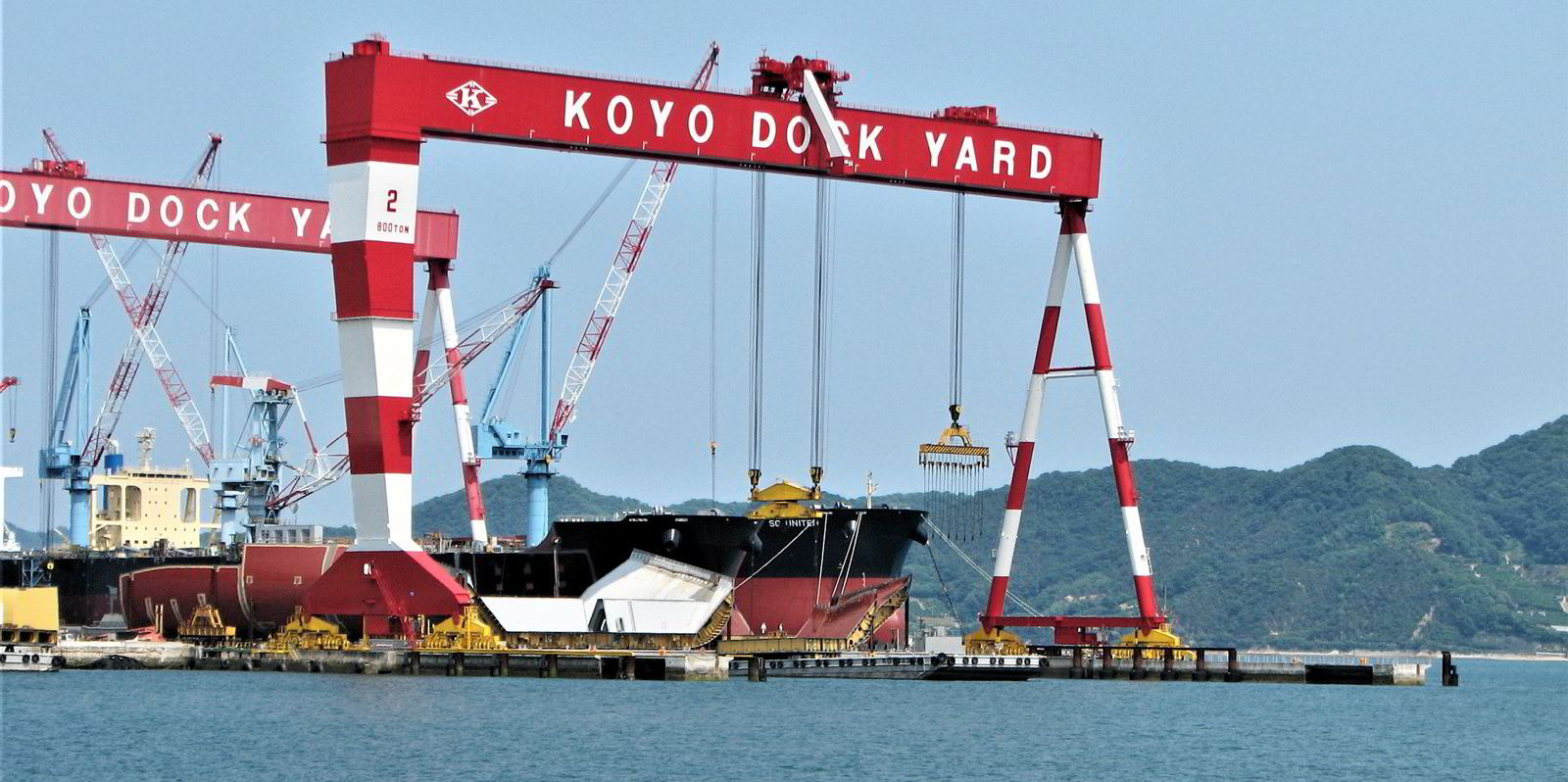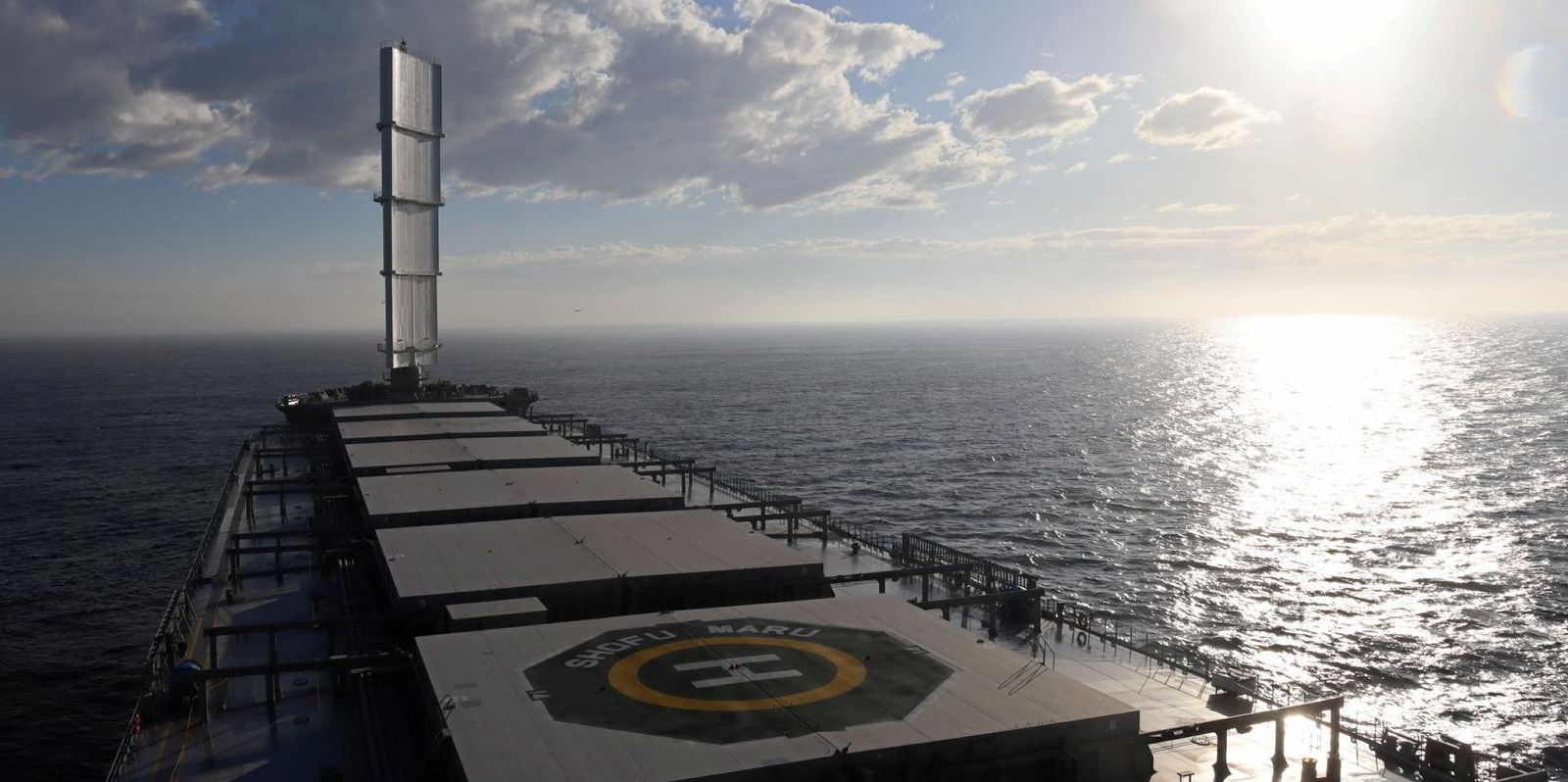The sale-and-purchase market is primed for a revival in bareboat charterback lease deals involving Japanese buyers.
Brokers say after a period of healthy Japanese secondhand sales over the summer, shipowners have been left with plenty of cash they are now looking to reinvest.
For the time being, the newbuilding market is not an option, as most yards are full, and there is little appetite for fresh orders while prices continue to rise.
However, the secondhand leaseback market with US dollar-denominated bareboat charter hire has become more attractive for Japanese owners due to a weak yen that has fallen on the currency markets recently.
Local press report anecdotal evidence of growing interest in sale and leaseback deals at Maersk Broker’s recent party in Tokyo, attended by some of the shipping industry’s biggest operators.
Dozens of private firms, based mostly in the west of the country, deal in leaseback business.
They range from giant tonnage providers Nissen Kaiun, Nisshin Shipping and Doun Kisen to smaller, lesser-known outfits such as Shunzan Kaiun and Imahatsu Kaiun.
Oslo-headquartered ship finance company NorthCape has been growing its Japanese finance business.
Over the past three years alone, it has structured 26 Japanese deals involving 43 ships, including bulkers, tankers, reefers and container ships.
The company has noticed “strong demand for ship financing opportunities in Japan”, where individual sale and leaseback deals typically range from between $10m and $50m.
Twists and turns
NorthCape chairman Peter Knudsen said the sale and leaseback market is always going through “twists and turns” but he points out that there has been consistent growth in Japanese deals since his company entered the business in 2012.

He said regional Japanese owners have been looking for alternative business opportunities as the big Tokyo-based operators have trimmed their fleets, and there has been a decline in aircraft leasing deals.
The wealthy regional banks have also viewed sale and leaseback deals as an opportunity to develop lending abroad, which has added liquidity to the market.
Japan has also provided a source of finance for ships, which Western banks are less inclined to refinance these days.
“Western banks tend to shy away from older ships but Japanese finance fits very well with newer ships and ships aged 10 to 15 years old — provided there is a corporate guarantee,” Knudsen said.
A robust consolidated balance sheet is a critical condition for getting Japanese bareboat charter deals done.
Apart from that, the deals are relatively easy to arrange, Knudsen said.
Generally, Japanese lease deals are regarded as “covenant light” and can be concluded in six to nine weeks, depending on whether the seller is a well-known “household name” or not.
Chinese lease deals tend to be more complex and can take several months to wrap up.
As in many areas of Japanese business culture, the sale and leaseback business tends to be relationship-driven. “We are both credit and relationship-focused, which are both key success factors,” Knudsen said.
Many big-name operators, including the likes of Norden, Ultrabulk, Stena Bulk and Oldendorff Carriers, are working with Japanese owners on sale and leaseback and the Japanese Operating Lease with Call Option, or JOLCO, arrangements for larger projects and newbuildings.





